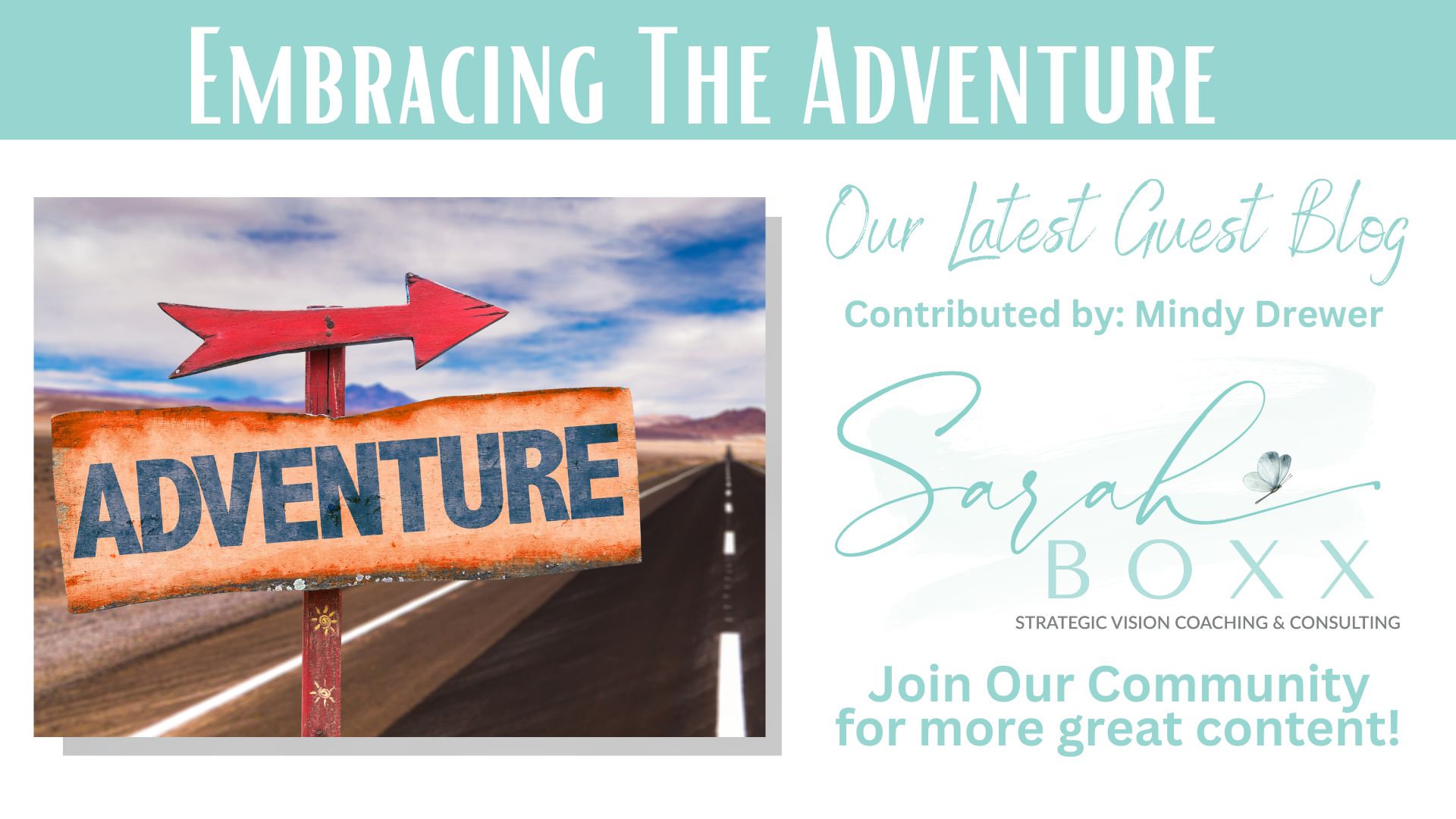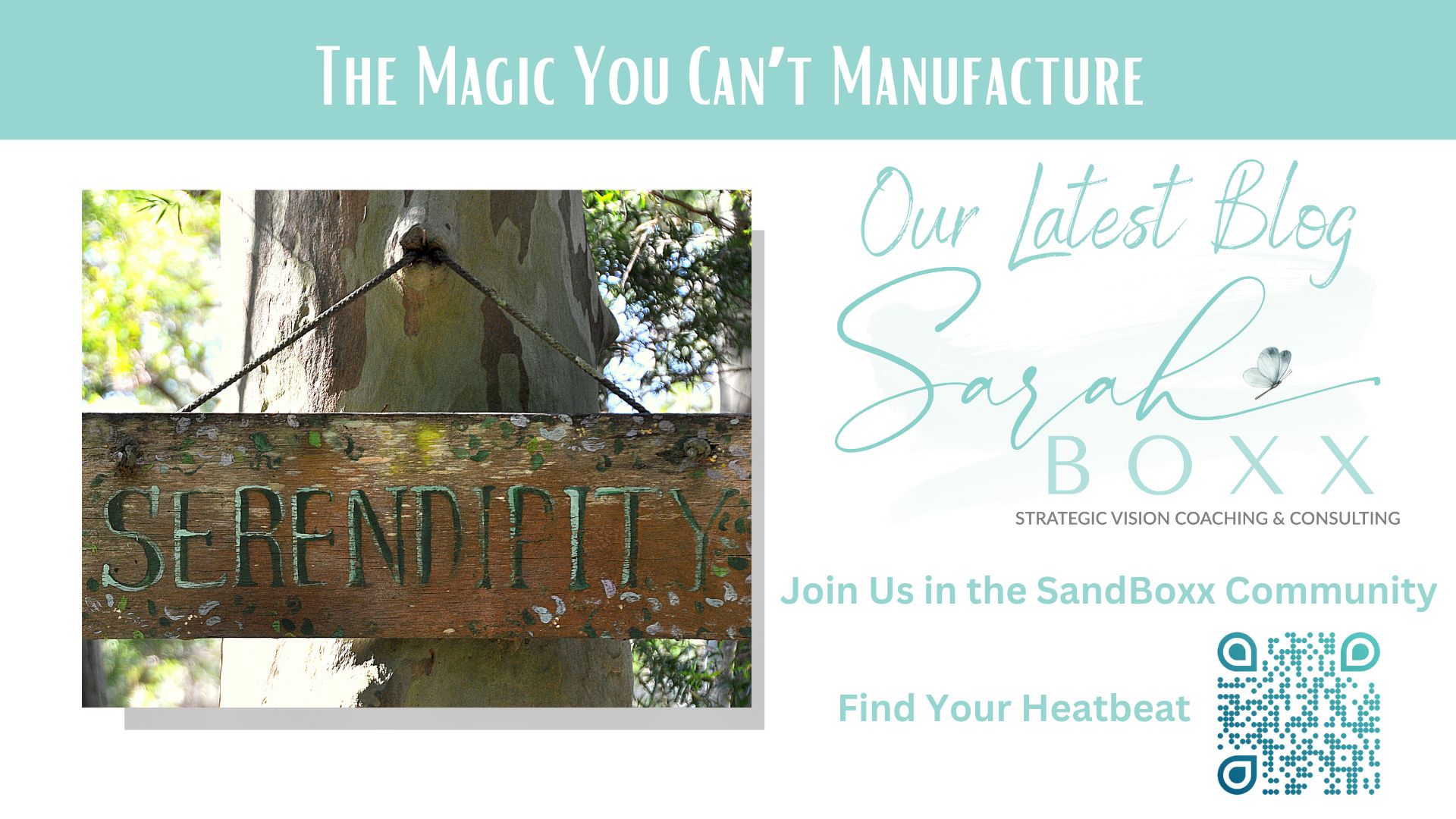Guest article contributed by Mindy Drewer
Adventure. A word that is exciting to some, scary to others.
The first thing to do, of course, is to define the word ADVENTURE.
Many talk about life as a journey. If you Google quotes about it, you will come up with…well, a lot.
- “Life is a journey to be experienced, not a problem to be solved.” – Winnie the Pooh.
- “Life is a journey that must be traveled no matter how bad the roads and accommodations.” – Oliver Goldsmith.
We tend to experience time as though it were a straight line with the picture of life as our journey from A to B in a certain sequence of events. Well…our understanding of time and sequence of events in life are really man-made or social constructs.
For Doctor Who fans out there, “Time is a big ball of wiggly-wobbly, timey-wimey…stuff.”
Humans crave a sense of order, a sense of control, a sense of power over our circumstances, so we create systems that give us that. But it’s just a sense.
Life is chaotic and messy.
Society has set up a social construct that looks something like this:
Birth – elementary/middle/high school – college – marriage – career – children – grandchildren – retirement – death.
If this is the expectation you have of what life should look like, what happens if you have a learning disability, don’t go to college, can’t have children, want to travel…etc?
The Oxford Language defines adventure as “an unusual and exciting, typically hazardous, experience or activity.
MY definition of adventure: “the unknown.”
Isn’t everything in life actually unknown?
You may say there are absolutes in life. BUT – what often seem like guarantees in life are not actually guarantees at all.
This reality used to scare me.
From the time I was a very young child, I had a deep fear of being out of control. I had separation anxiety for most of my life because if my loved ones were out of sight they were out of my immediate control.
So has this cycle of control changed for me? The answer is a resounding YES, with a little bit of no underneath.
I’m still human.
I still have my natural personality which definitely leans toward “control freak.” However, I have grown and learned and matured. My husband, Paul, picked up a saying from his mother when things didn’t go as expected that “this is an adventure.”
As I get older and experience more of life and faith, I am experiencing freedom in a wonderful way and learning to embrace the adventure that is life. A very important step in embracing adventure is becoming more self-aware. We can’t make choices or changes if we don’t understand what’s happening.
As a child with separation anxiety, I had no idea what was causing it. I was reacting to a feeling. As I put coping mechanisms in place they helped, but ultimately didn’t solve the problem because I was not addressing the core motivation.
Embracing chaos and messiness takes paying attention to your physical, mental, emotional, and spiritual state.
- Why do you react the way you do to a situation?
- Why do people respond or react to you the way they do?
There are wonderful tools that can help you gain control over your reactions and choices as you gain self-awareness. One of my favorites is the Enneagram, a unique personality profiling system that addresses our core motivations and can be used for deeper self-exploration than other systems I have worked with.
As you work to become more self-aware, avoid critical thoughts about what you notice. The most productive use of your time is to collect data without judgment, then use that data when making choices.
Mental awareness is an area where various personality typing has been helpful to me.
My Enneagram type is a 1, named the Reformer or the Perfectionist. I naturally believe in a correct way for things to be done and try to get everyone else to agree with me and do it the same way. (This is an extremely simplistic explanation, but for the purpose of this example I will not get more complicated).
How this has been helpful for me:
- I recognized that I do not have to let that inner drive to achieve control me. I can make choices to not finish something, change the due date, not think about it unless I’m directly working on it.
- I realized that not everything is my responsibility. I used a mantra for a long time to retrain my brain – “that is not my responsibility.” An important step was to learn to identify what I was and wasn’t responsible for.
- I came to recognize that often there is more than one right way to do things, and that my understanding of the right way was how I was initially taught it. Or possibly through trial and error I determined the best way. I learned that a whole new world opened up to me when I started working with others, hearing their perspectives and trying new things.
Other important things to pay attention to:
- What are the “tapes” in your head?
- What have people told you throughout the years that you’ve bought into? Was it something about your appearance or personality? Your position in life? What you can or can’t do? These tapes have a great influence on our choices, reactions, attitudes, and relationships.
Let me give you a personal example…
The Enneagram pointed out that the core motivation for a type 1 is to be good – do the right thing according to what I understand is the right thing. For me, the tapes were telling me what the right thing about weight was, but it was actually just a perspective that I was taught.
Become aware of your tapes, find the truth and replace the tapes with something that moves you toward greater health.
The Enneagram is also a great tool for recognizing our relationship to emotions. In the Enneagram there are three centers – body, heart (emotion), and mind (thinking). My type is in the body triad so I tend to make choices more through intuition, and is probably why I’m more physically sensitive.
I connect to a type 4, which is in the heart triad, for coping with stress. Type 4s love to be unique and tend to be artistic. I find that I have always used music and movies to cope with stress and feel emotion. If I want to cry I put on a sad movie, if I’m mad I put on passionate music. Some times I just need to let off steam and I put on music to meet my mood.
We are back to coping mechanisms, though. Not healthy practices. I have come to recognize that when I feel nothing, I’ve probably put up a coping wall to shield myself from something I don’t want to deal with. I’ve learned to be kind and gentle with myself allowing emotions to come without fear and criticism.
Choosing to embrace the adventure means changing our mind-set from thinking of life as a journey that we can plan and control to accepting life as an adventure where we have no idea what is going to happen. We expect the chaos and mess, the joys and disappointments, the times of depression and moments of contentment.
How are YOU embracing the adventure today?
About the Author:
Mindy Drewer is an Enneagram coach working alongside her husband, Paul Drewer, in their joint coaching business: Chasing the Sky. Having experienced the fruits of utilizing the Enneagram tool in her on life, Mindy has a passion for supporting others on the journey toward greater self-awareness and ultimately joy and freedom.
Connect with Mindy at:
Website: https://chasingtheskypmd.mailchimpsites.com/
Facebook: https://www.facebook.com/chasingtheskypm
No Labels, No Limits Podcast: Listen to Mindy!





